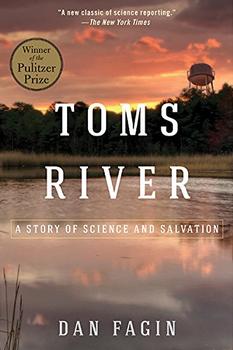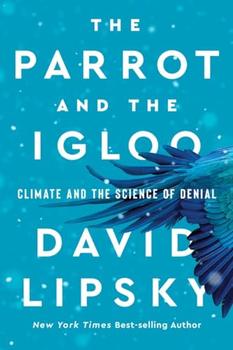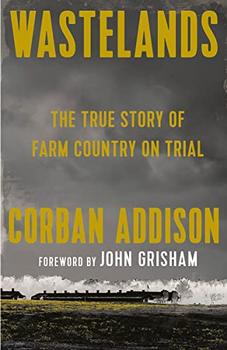Summary | Excerpt | Reviews | Beyond the book | Read-Alikes | Genres & Themes | Author Bio

A Story of Science and Salvation
by Dan FaginThe riveting true story of sixty years in the life of a small town ravaged by industrial pollution, Toms River melds hard-hitting investigative reporting, a fascinating scientific detective story, and an unforgettable cast of characters into a sweeping narrative.
Winner of the 2014 Pulitzer Prize for Nonfiction
The riveting true story of sixty years in the life of a small town ravaged by industrial pollution, Toms River melds hard-hitting investigative reporting, a fascinating scientific detective story, and an unforgettable cast of characters into a sweeping narrative in the tradition of A Civil Action, The Emperor of All Maladies, and The Immortal Life of Henrietta Lacks.
One of New Jersey's seemingly innumerable quiet seaside towns, Toms River became the unlikely setting for a decades-long drama that culminated in 2001 with one of the largest legal settlements in the annals of toxic dumping. A town that would rather have been known for its Little League World Series champions ended up making history for an entirely different reason: a notorious cluster of childhood cancers scientifically linked to local air and water pollution. For years, large chemical companies had been using Toms River as their private dumping ground, burying tens of thousands of leaky drums in open pits and discharging billions of gallons of acid-laced wastewater into the town's namesake river.
In an astonishing feat of investigative reporting, prize-winning journalist Dan Fagin recounts the sixty-year saga of rampant pollution and inadequate oversight that made Toms River a cautionary example for fast-growing industrial towns from South Jersey to South China. He tells the stories of the pioneering scientists and physicians who first identified pollutants as a cause of cancer, and brings to life the everyday heroes in Toms River who struggled for justice: a young boy whose cherubic smile belied the fast-growing tumors that had decimated his body from birth; a nurse who fought to bring the alarming incidence of childhood cancers to the attention of authorities who didn't want to listen; and a mother whose love for her stricken child transformed her into a tenacious advocate for change.
A gripping human drama rooted in a centuries-old scientific quest, Toms River is a tale of dumpers at midnight and deceptions in broad daylight, of corporate avarice and government neglect, and of a few brave individuals who refused to keep silent until the truth was exposed.
In an age when thorough investigative reporting is becoming increasingly rare, Dan Fagin's work demonstrates how journalism can bring clarity to the past and also better the present day...continued
Full Review
(582 words)
This review is available to non-members for a limited time. For full access,
become a member today.
(Reviewed by Elizabeth Whitmore Funk).
As Fagin shows readers through the specific events in Toms River, environmental and ecological concerns began to receive attention in American politics in the 1960s and 1970s. The creation of the Department of Environmental Protection (now the Environmental Protection Agency) was heavily encouraged, in part, by individuals across America who, like the residents of Toms River, feared for the well-being of their region and themselves.
 Investigative journalists played a significant role in spearheading the movement by reporting on the dangers of environmental toxins, deforestation, nuclear testing, and other ecological damage. Most notable among literary works was the 1962 Silent Spring, an exposé by marine biologist Rachel Carson....
Investigative journalists played a significant role in spearheading the movement by reporting on the dangers of environmental toxins, deforestation, nuclear testing, and other ecological damage. Most notable among literary works was the 1962 Silent Spring, an exposé by marine biologist Rachel Carson....
This "beyond the book" feature is available to non-members for a limited time. Join today for full access.

If you liked Toms River, try these:

by David Lipsky
Published 2024
The New York Times best-selling author explores how "anti-science" became so virulent in American life—through a history of climate denial and its consequences.

by Corban Addison
Published 2023
As vivid and fast-paced as a thriller, Wastelands takes us into the heart of a legal battle over the future of America's farmland and into the lives of the people who found the courage to fight.
There is no worse robber than a bad book.
Click Here to find out who said this, as well as discovering other famous literary quotes!